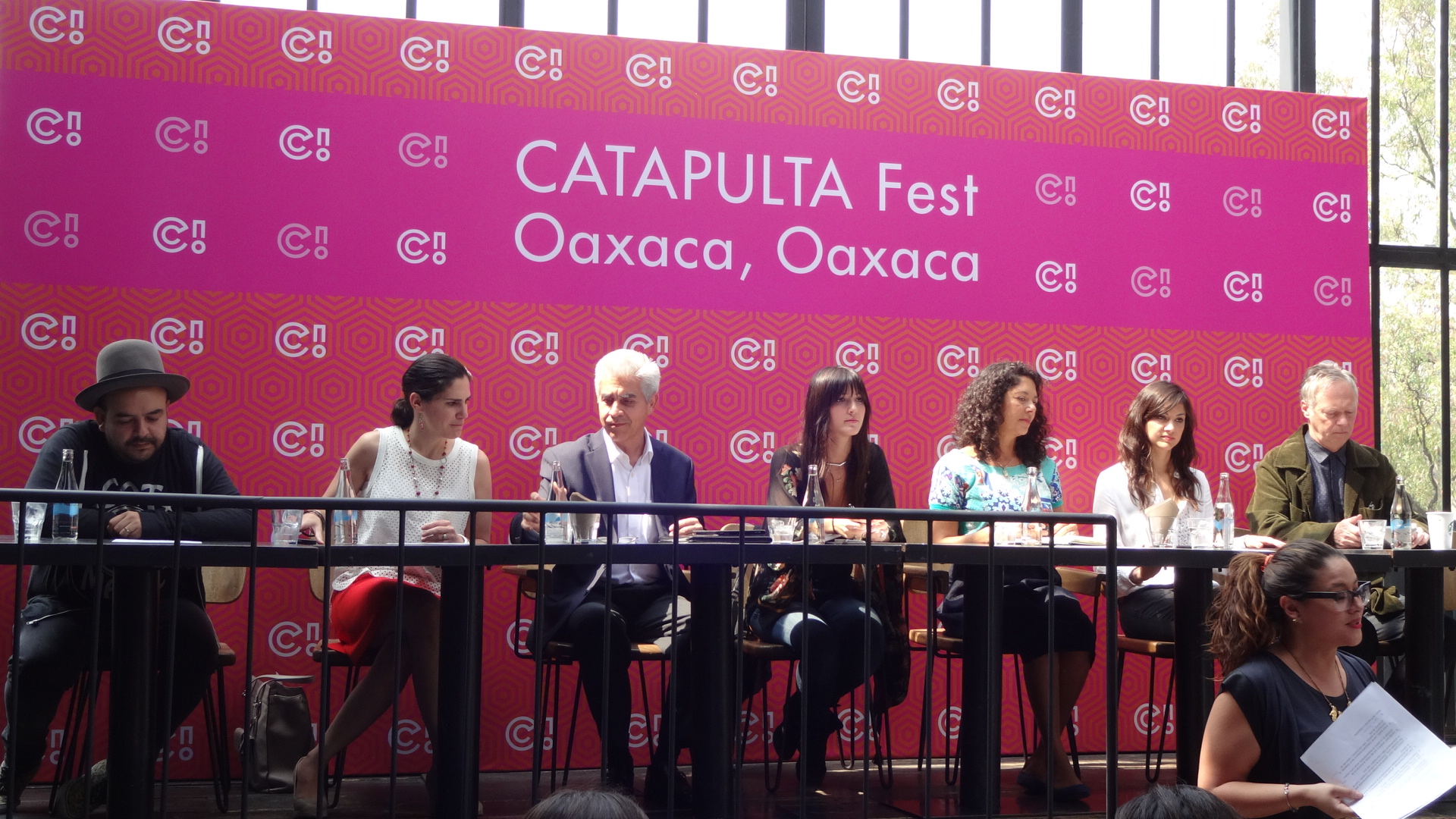The multifaceted event known as Catapulta has grown organically from a loose gathering of creatives in the capital of the Mexican state of Oaxaca. This summer’s third convening, held in the spacious art and cultural space known as La Calera and a downtown cultural center, showed it has stayed true to its roots.
The “Festival of Social Innovation” is led by Mark Beam, who is also a co-founder of SOCAP, which is coming up in October in San Francisco. After a social innovation gathering at the “Hub Oaxaca,” Mark and his crew added programming on arts, music and culture. Catapulta was born.
“Three years ago we started mapping the social entrepreneurship ecosystem together with 30 other organizations,” Mark told me. “What is unique about how we approach this is that we are consciously bringing in the creative community in a diverse manner.“
This was evident on the first night of this year’s festival. A succession of artists and musicians presented “Catapulta Talks.” Tomas Davo & Alberto Bustamante of NAAFI spoke about the music events they’ve produced in Mexico City and abroad. Camilo Lara and Toy Selectah of Compass, who rocked the concert at the end of the festival, teased a project in which they produced songs with 90 influential musicians around the world. Leticia Gasca described FuckUp Nights, where entrepreneurs present their failures. The event series itself is an international success, spreading from Mexico City to 100 other cities.
Impact investing was a major theme. SVX Mexico and Agora Partnerships coordinated simulated board meetings in which social entrepreneurs pitched their projects. The companies are working on clean water, formalization of property ownership, livestock husbandry, and manufacturing to provide jobs for mentally disabled workers.
Other notable innovations were on display including Sistema Biobolsa, which has developed a shipable turnkey set of equipment to provide biogas production and storage capability. Fredo Arias King presented ‘Ejido Verde’, a reforestation project in Michoacan that plants pines which produce a sap that give participants a product to sell while the trees are growing.
Another theme was connecting off-network communities. Rhizomatica has connected 15 communities in the mountains of Oaxaca through a group-owned network enabling cell and text communications through a GSM network. Artist Mary Ellen Caroll uses Super WiFi technology over television spectrum vacated by the migration to digital TV to empower local communities to create their own digital installations.
The activist star of the show by far was Pati Ruiz Corzo, the Latina embodiment of Wangari Maathai, the Kenyan environmentalist and Nobel Peace Prize winner. Pati gave an impassioned presentation on the environmental conservation projects she represents in the Sierra Gorda region of Mexico.
Tom Chi, one of the founders of Google Labs, led a closing session ostensibly focused on the “Future of Work.” Chi pivoted instead to a construct he and the festival directors had developed called the “Destiny Triangle.” He divided the crowd into three groups: Entrepreneurs with a deep mission; artists; and investor/business professionals. Joined in such triumvarates, we were directed to figure out how to promote and progress the entrepreneur’s vision.
The final group to speak were the artists behind CocoLab, a Mexico City multimedia production group. The project, named Disarm, flips the script by producing music from tools of destruction. As they were setting up the previous day, we had seen bass kickers, a hi-hat, a cymbal assortment, and a xylophone fashioned with gun barrels of differing lengths. The instruments produced sound with solenoid actuators triggered by computers and a keyboard, similar to Taylor Kuffner’s Gamelotron. The crowd gathered around the makeshift music boxes for a dynamic and fun performance, a campfire style ending to Catapulta.











